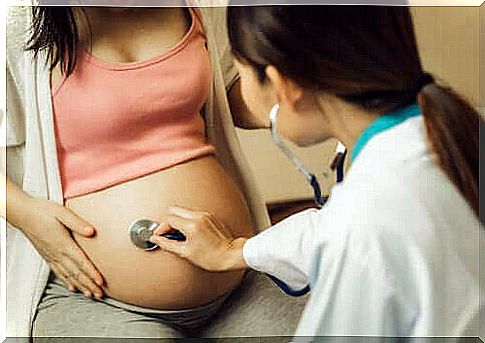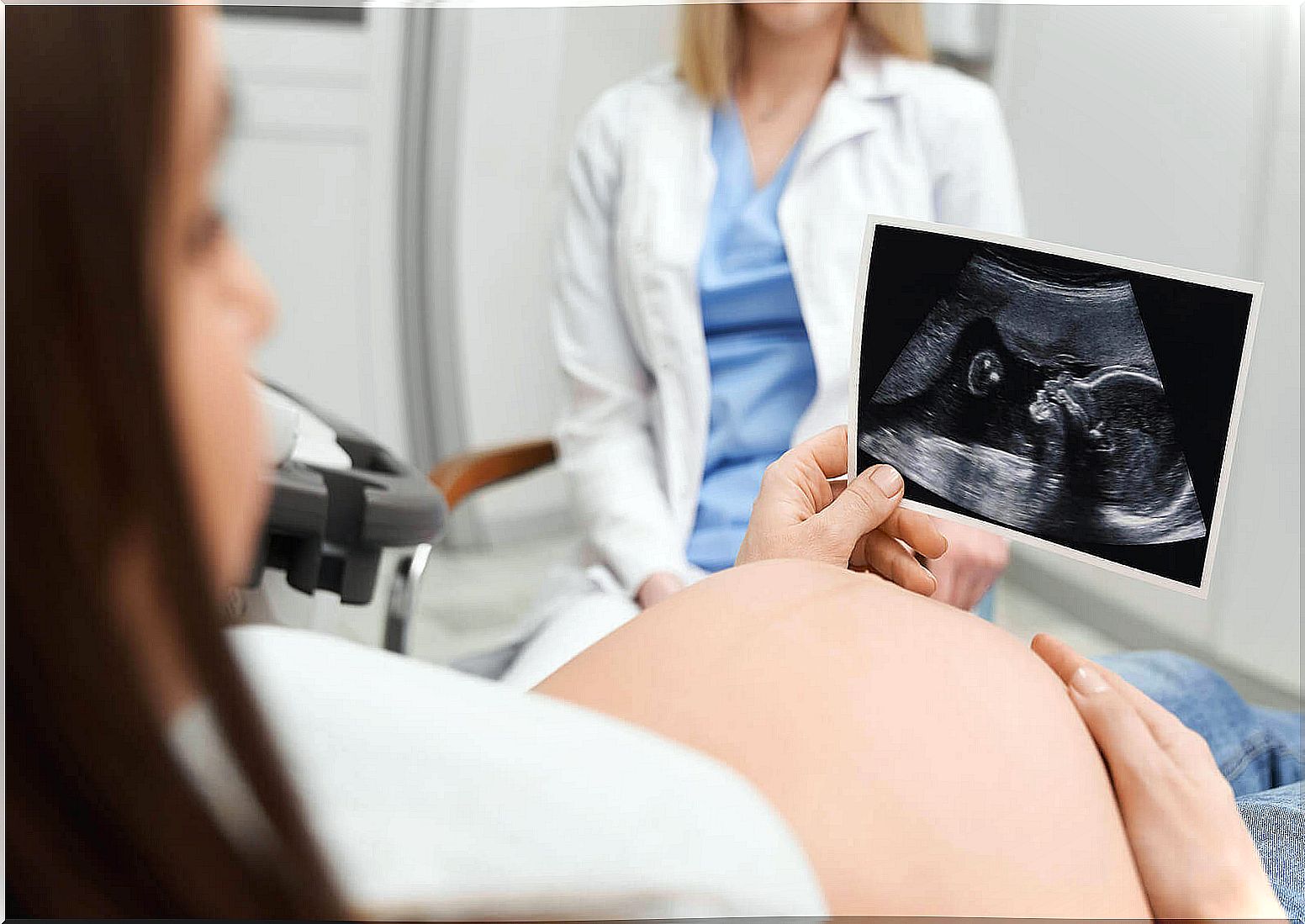Epilepsy And Pregnancy: Everything You Need To Know

Having epilepsy during pregnancy is a condition that happens in 3 of every 1,000 pregnancies. It is not the most common, but it cannot be said that it is an insignificant number of cases.
Fortunately, seizures do not increase because of the fetus, nor are there changes in most babies born to mothers with the condition. Up to 96% are born from a normal, uncomplicated birth.
What happens in the pregnancy of a woman with epilepsy?
Epilepsy is defined as a neurological disease in which a person suffers synchronized and intense discharges in their neurons. That is, the electrical activity of nerve cells takes place in large areas of the brain at the same time.
This may or may not result in seizures. There is a difference between epileptic seizures and the convulsive state. They don’t always go hand in hand, even if in popular thinking they do. However, electrical discharge always expresses itself with some symptom, which may be an absence or a small localized movement.
When going through a pregnancy, the female body changes by the action of hormones, especially progesterone. There are changes in the genital tract, reproductive system, heart and soft tissue in general. We can say that almost all cells are affected, in one way or another.
There is no significant increase or decrease in seizures during pregnancy. Epidemiological studies in this sense conclude that this type of influence cannot be attributed to the fetus.
However, when the pregnant woman’s sleep is not adequate, due to insomnia, there may be more serious problems. Seizures usually increase if lack of sleep is concentrated in the last trimester. However, it is unclear whether the ultimate culprit is sleep, stress, or a hormonal factor.
However, there are problems with the concentration of drugs used to treat epilepsy. Remember that women with epilepsy who are already on medication present a change in the total volume of circulating blood during pregnancy, as well as its distribution through body tissues.

Antiepileptic drugs during pregnancy
The most commonly prescribed anticonvulsant medications can cause birth defects. This creates a dilemma in the care and follow-up of a pregnancy in a woman with epilepsy.
If we compare the incidence of birth defects between children born to epileptic mothers and women without the disease, we find noticeable differences. While in the general population there is a malformation in every 100 births, in those taking antiepileptic drugs there is up to 3 times more risk.
The likelihood of a complicated birth increases when too many medications are prescribed for the mother. This is a common situation among epileptic patients who do not respond well to usual treatments, and the doctor begins to combine different doses to reduce seizures.
In polytherapy, which is treatment with different drugs at the same time, congenital malformations were detected when drugs such as valproate and carbamazepine were included. In the fetus, the most affected is the central nervous system.
What doctors suggest when a woman plans a pregnancy is to reduce the doses of antiepileptics to safe points. Sometimes very minute amounts of a single drug can be used if the patient has been seizure free for more than 9 months.
However, this reduction can only be done by a medical professional or specialist. Neither the patient, their relatives, nor anyone without the necessary power can make this decision, as the risk of not having the proper dose is high and the consequences are severe.
Is there a risk of seizures during pregnancy?
Although statistics do not clearly indicate an increase or decrease in seizures during pregnancy, they do happen. If the patient has always had frequent seizures, she will continue to do so during her pregnancy.
Convulsive states pose risks to the mother and fetus. One of the biggest problems is hypoxia, that is, the lack of tissue oxygenation during the event. If enough oxygen does not reach the placenta, the baby may have the function of its developing organs affected.
Trauma is also a complication of seizures that becomes problematic in a pregnant woman. By losing consciousness during the episode, the patient may fall and injure herself in sensitive areas such as the skull and abdomen, now increased in size as it shelters the fetus.
The mortality rate in epileptic pregnant women is higher than in other pregnant women. Many of these deaths, estimated at about 1 in every 1,000 pregnancies, are attributed to sudden unexpected death in epilepsy (MSIE).
MSIE is an unexplained death, without drowning or trauma, in people with epilepsy. The origin of the syndrome is unknown, but it is known that there are risk factors that can be activated to reduce the possibility of its onset.
A woman should never sleep alone, nor should she sleep face down. Also, as far as possible, your family or friends should be trained in first aid to help you.

What to remember about pregnancy and epilepsy?
Pregnancy can be combined with epilepsy. It is not an impossible task, but it requires close monitoring by the physician, in addition to precautions that reduce the associated risks.
The medication continues to be maintained according to the professionals’ prescription. Maternal blood concentration dosages can be ordered to adjust amounts. The pregnant woman should never decide on her own to suspend or change the dose.
Delivery must be scheduled in advance, in specialized locations, with a medical team with experience in the matter. The cesarean option is valid and must arise from a sincere dialogue between the obstetrician and the woman. The greater the communication between those involved, the better results will be obtained at the end of the entire process.









